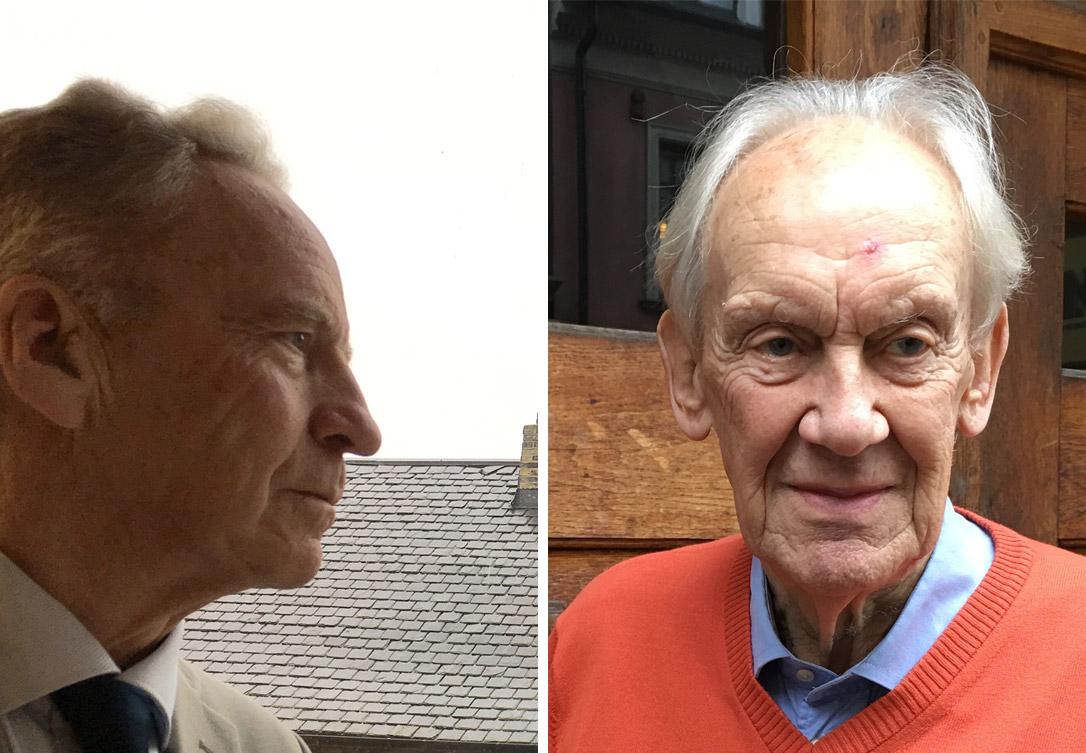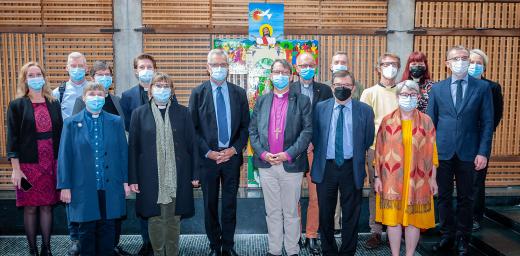Making history again in a city of students and of ideas

Lund mayor Lennart Prytz and Church of Sweden pastor Carl-Gustav Andrén look forward to Monday's joint commemoration. Photos: Maria Lundström
Former Vice-Chancellor of Lund University Andrén and Lund Mayor Prytz share their excitement about the Joint Commemoration
(LWI) - Carl-Gustaf Andrén was in his mid-twenties when he attended the founding assembly of The Lutheran World Federation (LWF) in Lund in 1947. The 94-year-old ordained pastor in the Church of Sweden and chancellor of Lund University from 1980-1987, talks about his deep and long-term view of the significance of the Joint Catholic–Lutheran Commemoration being held in Lund on 31 October 2016.
”In 1947, Bishop Anders Nygren stressed that the main reason for founding the LWF was ecumenism and the dialogue between the Lutheran and the Catholic church,” says Andrén.
“The engagement in the ecumenical work intensified,” Andrén recalls. “[The founding of the LWF] marked the start of the dialogue between the Lutheran and the Catholic Church. The talks at the time were tough, it was a challenge. The breakthrough came with the Second Vatican Council in the 1960s. It opened new doors and contacts.”
Andrén sees a bridge from the founding 1947 LWF Assembly to the joint commemoration but recognizes the journey is not yet finished. “You have to have a long-term perspective on the relations. When communion at the altar will be celebrated jointly we do not know. Maybe future generations will witness this.”
You have to have a long-term perspective on the relations. When communion at the altar will be celebrated jointly we do not know. Maybe future generations will witness this.
But what is important, he emphasizes, is that “religions put an end to conflict.”
“There are a multitude of churches and denominations in the world. We must strive for unity.”
Unity and cooperation
The connection of the past and present is also not lost on Lennart Prytz, mayor of the city of Lund.
“The fact that the city of Lund is being recognized and connected with this event that advocates unity and cooperation is a source of pride,” says Prytz. “The Pope’s visit makes Lund a spiritual center. We are an international city with more than 150 nationalities. To us cooperating across borders is both part of everyday life and an important symbol. That The Lutheran World Federation was founded in Lund in 1947 goes to prove this city's relevance with regard to openness and cooperation.”
As mayor, Prytz is involved in all the preparations to receive thousands of visitors, including over 500 journalists, and organizing a special lunch on 31 October, hosted by the Municipality of Lund, Lund University, the Church of Sweden and the Catholic Church in Sweden.
Amidst all the duties, it is clear that Prytz is also motivated by pride in his city. “My heart belongs to Lund, it's an exciting place with many dimensions. It's one of Sweden's oldest cities and at the same time the atmosphere is youthful since one third of the inhabitants are students. It's a city teeming with ideas, innovations and belief in the future.
“We are doing our best to receive visitors to the event. This is a great opportunity for our city.”
Andrén also looks forward to actively participating on 31 October, attending the lunch, the prayer service in the Cathedral and the meeting in Malmö Arena.
“For sure this is important to the city of Lund and to the Cathedral that will hence be known all over the world,” says Andrén. “It's truly remarkable. It's a hugely significant and important event.”
All quotes taken from interviews conducted in Lund by Maria Lundström, Church of Sweden





